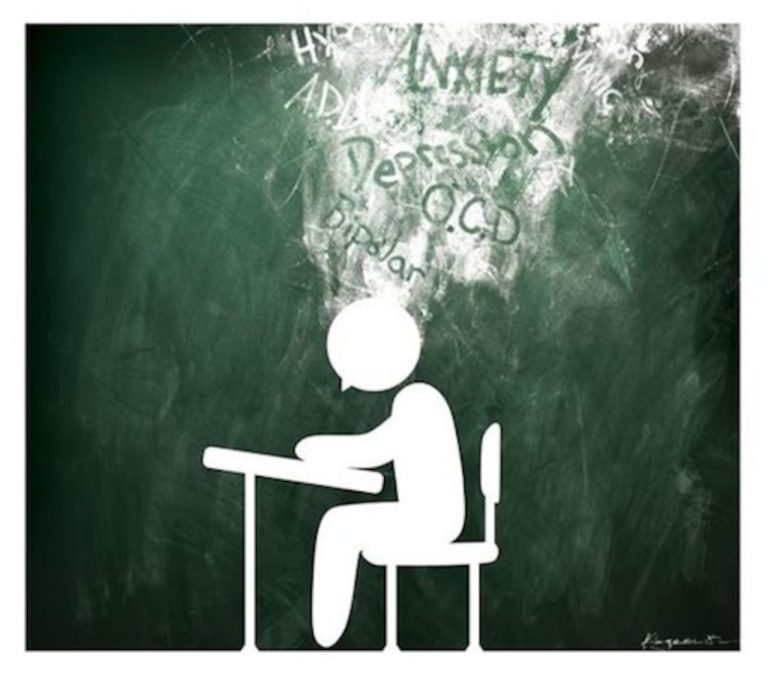Michigan is grappling with a youth mental health crisis, with more children and teens across the state suffering from anxiety, depression and suicidal thoughts than last year.
About 14% of Michigan children ages 3 to 17 were diagnosed with or reported having an anxiety or depression disorder in 2020, up from 11.9% in 2016, according to 2022 Kids Count data.
The reasons for the rise in mental health issues are complex, and each student faces different and unique challenges.
RELATED: Students are struggling, can Michigan schools meet their mental health needs?
But one thing is clear: Michigan educators say addressing the mental health crisis is essential for students to learn effectively, succeed in the classroom, and ultimately become healthy, well-rounded members of society.
Four things to know about Michigan's youth mental health crisis.
1. What is behind the youth mental health crisis?
The current generation is dealing with challenges that previous generations never faced: In the age of mobile phones and social media, most teens are constantly online, which experts say can have a negative impact on their mental health and self-esteem.
Christy Buck, executive director of the West Michigan Mental Health Foundation and founder of be nice., said social media can expose children and teens to online bullying and harassment at a critical time when their brains are still developing and unable to respond to complex issues in a healthy way.
Mobile phones have also changed the way people interact, limiting face-to-face interactions and isolating children and teens as they spend more time online.
The COVID-19 pandemic has also contributed to exacerbating mental health issues, with many students reporting increased feelings of loneliness and isolation due to widespread lockdowns and school closures during the pandemic.
Many students said widespread lockdowns during the pandemic have left them feeling lonely and isolated.
Kristy Clark, an elementary school counselor for Midland County's Bullock Creek School District, said some kids are experiencing higher rates of anxiety due to a lack of free play with scheduled sports and time spent online. Younger kids may not have personal cell phones, but many are spending their time watching YouTube on iPads or computers instead of playing outside.
2. It is up to schools to look after students’ mental health
While some families can afford to hire private therapists to care for their children's mental health, many Michigan students are unable to access care due to financial barriers or a lack of awareness about available support.
As a result, schools are tasked with closing the gap and ensuring students aren't left behind.
Michigan schools have stepped up their mental health efforts in recent years, screening students for mental health disorders and partnering with local mental health organizations to provide in-school services thanks to one-time pandemic response funds the state allocated to school mental health over the past four years.
One of the biggest challenges schools face in meeting these needs is a lack of resources: A nationwide shortage of counselors, psychiatrists and social workers has left school clinicians stretched thin last year, creating waiting lists for mental health services at many schools.
3. Budget for mental health to be drastically cut this year
Michigan has invested millions of dollars in schools in recent years to help students with mental health issues, but many educators were shocked when the Democratic-led Michigan Legislature cut funding by 92% in next year's budget.
Gov. Gretchen Whitmer signed a budget in July that cut $302 million from the budget allocated to student mental health and school safety, dropping the current budget's $328 million to $26.5 million next year.
The steep cuts mean schools will have less money for mental health programs next school year, and some education officials worry that could lead to cuts in staffing and resources. Some districts will dip into their reserve funds to avoid cuts for now, but superintendents say that's not a long-term solution.
The idea behind next year's spending plan was for lawmakers to include other money from the state's retirement fund that school districts could use for things like mental health, school safety and academic achievement.
The budget includes $589 million to offset payments into school district retirement systems, which the governor's office said will save about $400 per student, but education officials say the savings will be much smaller and worry that cuts to mental health budgets will have a negative impact on students.
State Superintendent Michael Rice said the new budget “will slow Michigan's recent momentum in addressing student mental health issues.”
4. What can parents do to help their students’ mental health?
Buck said it's crucial to create open lines of communication so students feel they can talk to their parents if they're struggling with mental health issues.
While it's easy to dismiss a teen's behavior as simply being shy, lazy or nervous, Buck said parents should take any changes in behavior seriously, especially if it starts to affect schoolwork or relationships.
If you notice a change in your child's behavior that lasts for more than two weeks, it's time to have a conversation, she says.
“If this is affecting their ability to go to school, complete daily tasks, do their homework, or have relationships for more than two weeks, then I need to personally engage in the conversation,” Buck says. “That doesn't mean they need to see a psychiatrist right away. It just means that I need to have a conversation with them, and maybe they need to see their pediatrician.”
Buck also advised parents to limit their teens' social media use or ban it altogether.
“Taking away phones at night is a must,” she says. “So limiting screen time is really important.”

